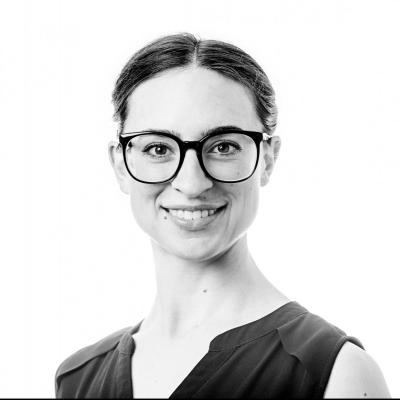Mags Milan is a graduate from our PGCert in Specialist Paediatric Osteopathic Practice (SPOP) course. We caught up with her to find out a little more about her experience studying at the UCO and what she's been up to since graduating.
Can you describe what it was like studying on the SPOP course?
It was challenging, but so enjoyable! The group of osteopaths in my cohort were very supportive - from the beginning, we organised ways to share knowledge and aid each others' learning, which really helped once we went into the clinical unit. The academic weekends were very stimulating - the depth of material and thoroughness of the delivery meant there was a lot to learn, but with a bit of organisation I found it achievable. The course and my private practice work began to inform each other very quickly, which helped me to assimilate all the new knowledge. And I really looked forward to the clinic sessions every week! The tutors were fantastic, the tutorials helped us to apply the academic knowledge, and we all had busy lists immediately. This meant that there was a real breadth of paediatric presentations for each of us, preparing us well for private paediatric practice. I loved the team environment too - I miss them all now that I've graduated!
What is a typical day for you in practice now that you have left and working as a Paediatric Osteopath?
I am lucky enough to work at a practice with an excellent relationship with local health visitors and GP practices, which means that the variety of presentations encountered on the paediatric course has really continued into private practice. Around a third of my patient list is paediatric patients at present, and I'd like to expand this to about half of my patient load. I find that paediatric and adult practice complement each other well, and keep me stimulated to maintain up-to-date knowledge and practices - parents ask far more challenging questions about their children's health than adults tend to ask about their own! And my cohort from the paediatric course are still constantly in touch, sharing information and asking advice from each other, which has been essential in building my confidence in paediatric practice.
Can you tell me about a challenging moment during training or work?
During the course, a patient presented with what we suspected was an undiagnosed craniosynostosis. I learned a lot about communication with medical professionals since their GP had no paediatric training and was not receptive to my request to refer for specialist investigation, leaving the parents very anxious and upset. The tutors helped me to understand the processes that doctors are required to follow, which helped me to collaborate with them more effectively - and to reassure the parents that the right help was on hand. The child was eventually referred appropriately - though I graduated before their appointment came through, so I never learned the outcome!
And what about a really rewarding moment?
Every day working with paediatric patients is rewarding! The combination of the purity of response to treatment - you know straight away if something is working or not! - and the opportunity to support and encourage struggling parents makes even the most challenging cases a delight.

